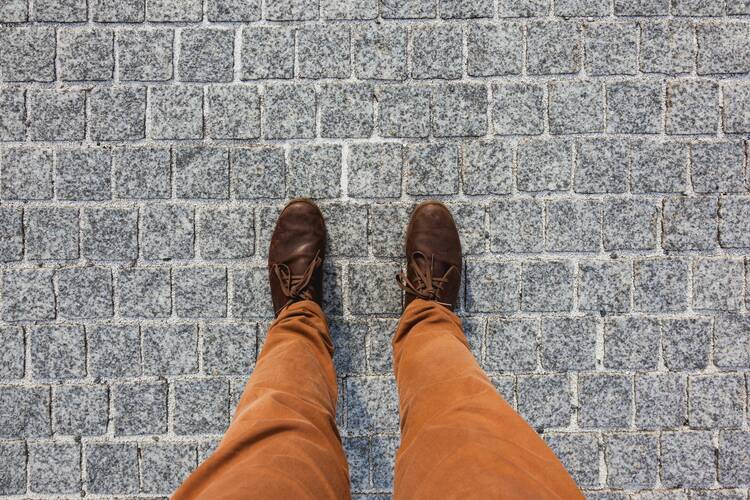A Reflection for the Memorial of St. Augustine, Bishop and Doctor of the Church
Find today’s readings here.
“...and you say, ‘If we had lived in the days of our ancestors,
we would not have joined them in shedding the prophets’ blood.’
Thus you bear witness against yourselves
that you are the children of those who murdered the prophets…”
Pointing out the Pharisees’ use of the subjunctive mood is a more subtle piece of Jesus’ lesson than the Socratic ‘gotcha’ in his logic of their ancestral shame.
They point backwards to the days of the prophets to clear their names, but that is peripheral to the matter at hand: their inattention to the present. It is this very inattention to the present that gives us Christ’s haunting simile of whitewashed tombs, “which appear beautiful on the outside, but inside are full of dead men’s bones and every kind of filth.”
Our detritus and muck builds in our own temples. How often do we overwhelm ourselves with a counterfactual concern with the past?
Had I been there, things would be different! Should I have said this instead of that?
The textures of reality are also of concern for Paul in his Second Letter to the Thessalonians. To reinforce his teachings on the labor of evangelization and restraint, he writes about our conduct in the real world—not of imagined pasts. Recounting how he walked through Thessaloniki, Paul avoids hypothetical scenarios, sharing, “for we did not act in a disorderly way among you”.
Today’s excerpt also contains the relatively uncommon treat of Paul’s signing of his epistle: “This greeting is in my own hand, Paul’s.” There is a further attachment to reality in this tiny sentence, an attention to the ink and paper and the hands that shaped words on the page. Paul welcomes trust in God through the human bond of that assurance of his word, his hand, in his signature.
We can carry ourselves in this trust as well, choosing to act and think and care for the matters of our concrete reality, of the tombs we can keep clean today.
There are wonders for us to find in contemplation, of course. I do not mean to disparage my imagination or yours. The images Jesus shares are so vivid for a reason. I have a hunch, however, that our contemplative work has to begin with our feet on the ground.








